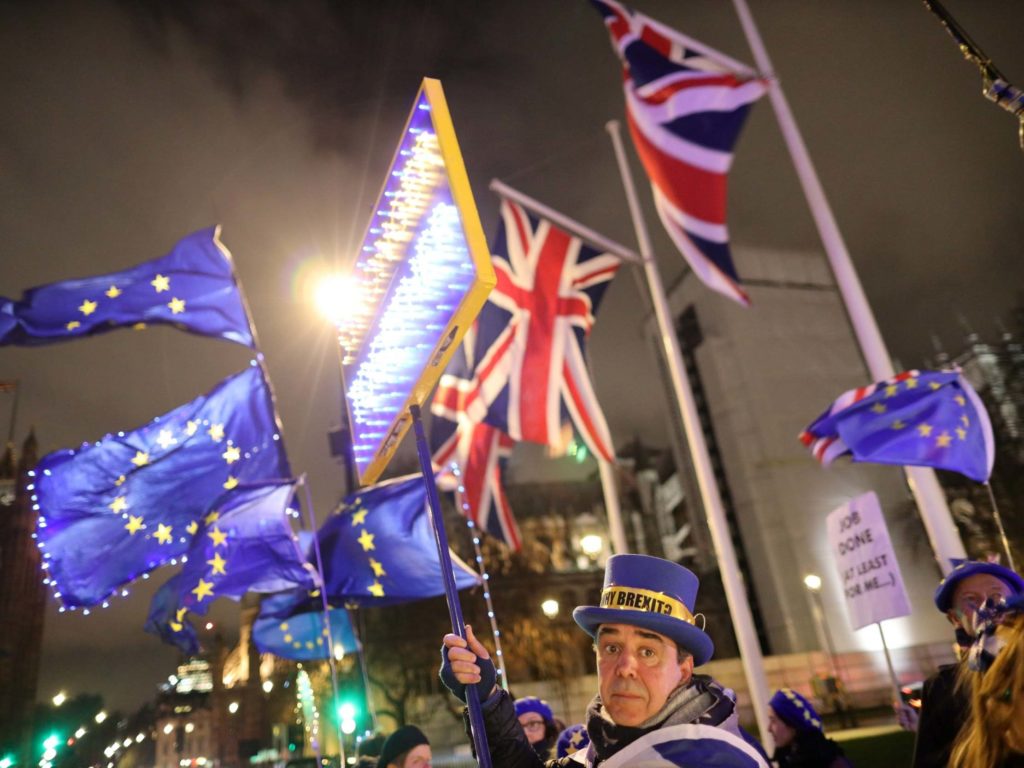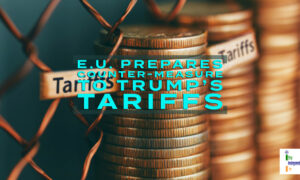
The United Kingdom has finally bid adieu to the EU after 47 years in the union, ending the 1316 days of turmoil
In a historic move, the United Kingdom (U.K.) has officially left the European Union (EU), ending the 47 years of membership.
The political turmoil of 1,316 days concluded with Brexit happening at 23:00 GMT. The moment was marked by celebrations as well as anti-Brexit protest. Scotland observed candlelight vigil to oppose Brexit.
Speaking on the occasion, the Prime Minister of U.K. – Boris Johnson said, “For many people this is an astonishing moment of hope, a moment they thought would never come. And there are many of course who feel a sense of anxiety and loss.”

He further added, “And then of course there is a third group – perhaps the biggest – who had started to worry that the whole political wrangle would never come to an end. I understand all those feelings and our job as the government – my job – is to bring this country together now and take us forward.”
Taking it to twitter, he tweeted, “Tonight we have left the EU – an extraordinary turning point in the life of this country. Let us come together now to make the most of all the opportunities Brexit will bring – and let’s unleash the potential of the whole UK.”
Prior to this, he posted a tweet which said, “This government will unite and level up our country. And as we build a new relationship with the EU, I urge everyone to find closure and let the healing begin.”
Johnson believes that Brexit is not the end. It is the beginning of a new dawn. Celebrations were organised in various pubs and social clubs across U.K., to support Brexit. Hundreds of people gathered at Parliament Square and sung patriotic songs while cheering for the new beginning.
Most of the EU laws will remain in force, including the free movement of people, until December 31, 2020, when the transition period gets over. Going forward, the U.K. is considering signing a permanent Free Trade Agreement (FTA) deal with EU.
The U.K. will try and negotiate a deal with Brussels on their future relationship. If they fail to sign a deal, it will mean economic damage for both sides and possibly the wider world. The EU is focussing on keeping the U.K. as close to EU regulations as possible and protect European interests.
Besides, eyeing new trade opportunities, the U.K. has allowed China based Huawei Technologies Co. Ltd., to help build U.K.’s next generation of super-fast wireless networks, but with restrictions. Huawei will be banned from supplying kit to sensitive parts of the network, known as the core. In addition, it will only be allowed to account for 35% of the kit in a network’s periphery, which includes radio masts. Also, it will not be allowed near military bases and nuclear sites. In addition, U.K. is also looking to have a trade deal signed with the U.S.
The President of European Commission – Ursula von der Leyen tweeted, “The challenges that Europe faces, and the opportunities that it can grasp, have not changed because of #Brexit. As part of this, we want to have the best possible relationship with the UK. But it will never be as good as membership. #NewBeginnings”
Supporting Brexit, the U.S. Secretary of State Mike Pompeo tweeted, “I am pleased the UK and EU have agreed on a #Brexit deal that honors the will of the British people. We will continue building upon our strong, productive, and prosperous relationship with the UK as they enter this next chapter.”
For the records, Britain joined the EU (formerly European Economic Community) on January 1, 1973, at the 3rd attempt. Two years later, Britain voted to remain in the bloc in the first nationwide referendum. In 2016, the then Prime Minister of U.K. – David Cameron held another referendum amid growing pressure from his own Member of Parliaments (MPs) and Nigel Farage’s U.K. Independence Party. Cameron started a campaign as he wanted U.K. to remain in EU but he could only get 48% of votes in favour as against 52% favouring Brexit.
The next Prime Minister of U.K. – Theresa May struggled to get her version of an EU withdrawal agreement passed by Parliament. As a result, general elections were held in U.K. in 2019 and Boris Johnson was elected as the new Prime Minister of U.K. Johnson’s appeal of leaving EU was approved by Member of Parliaments (MPs) ahead of Christmas 2019.










